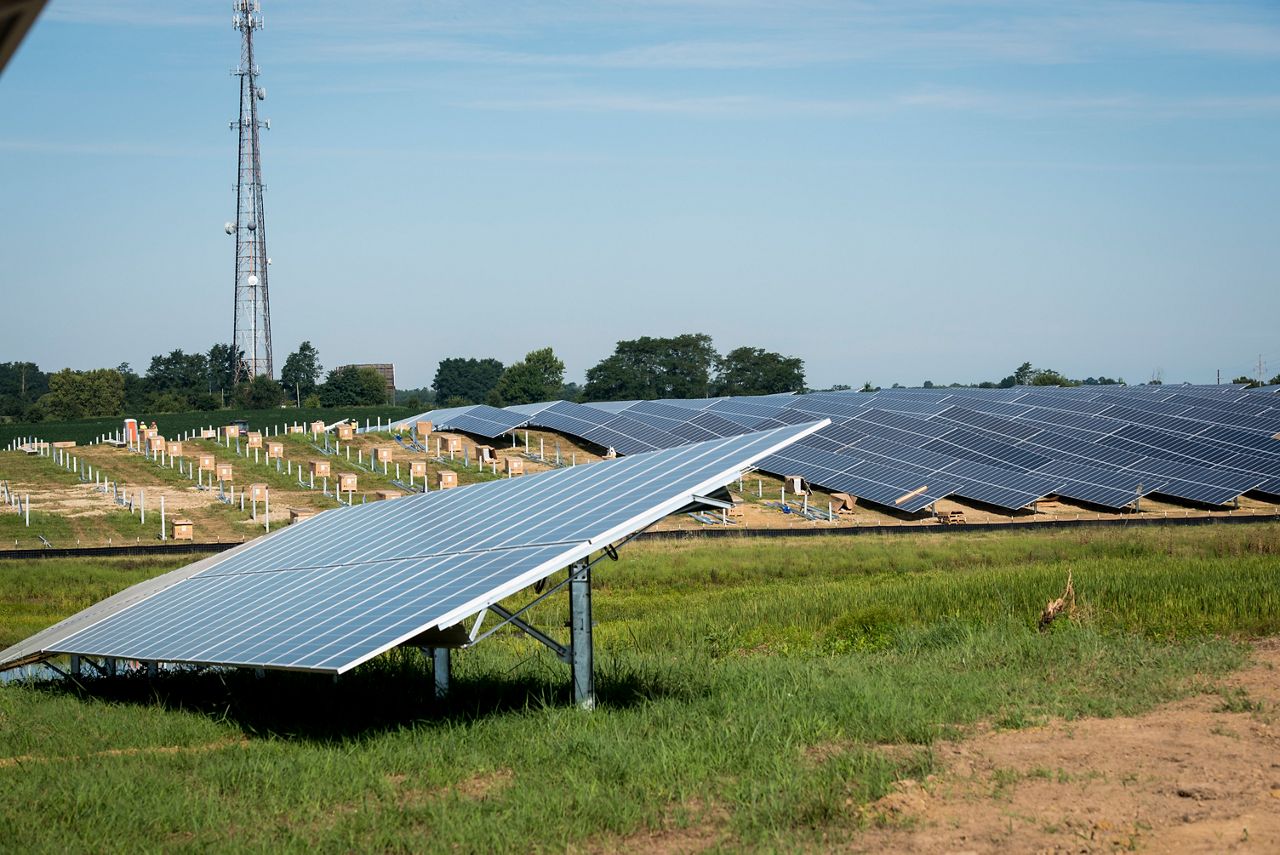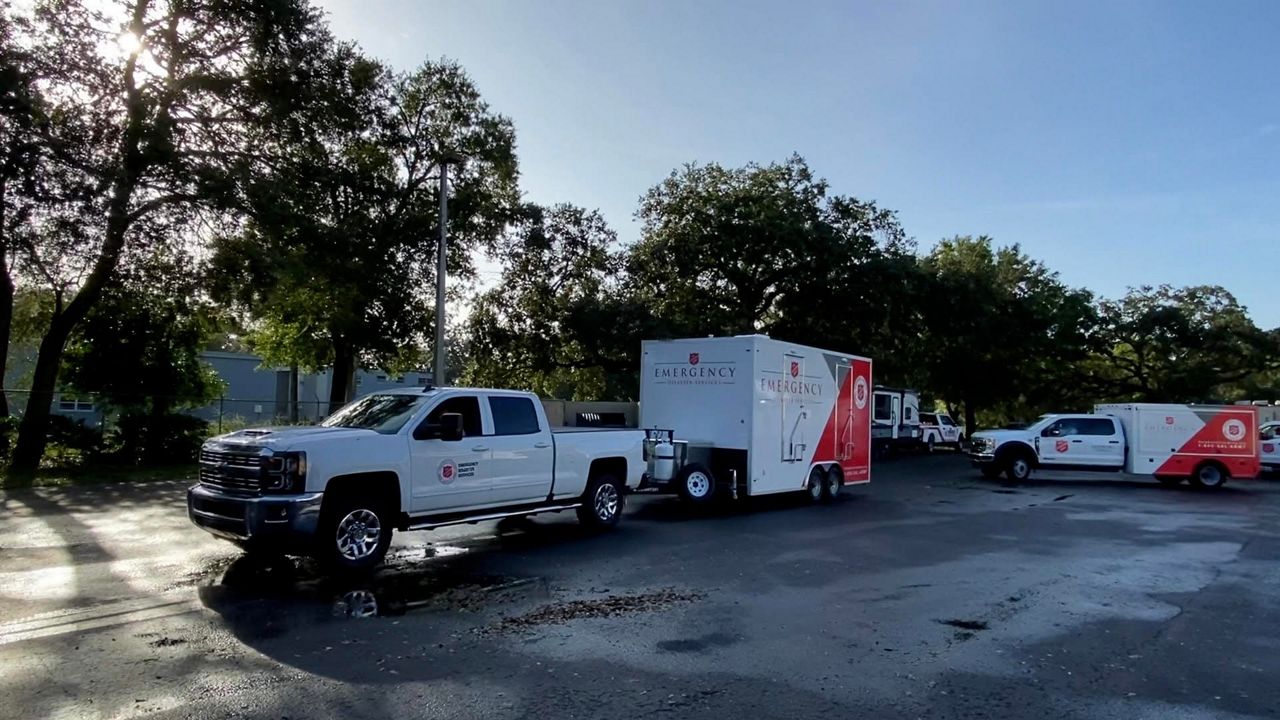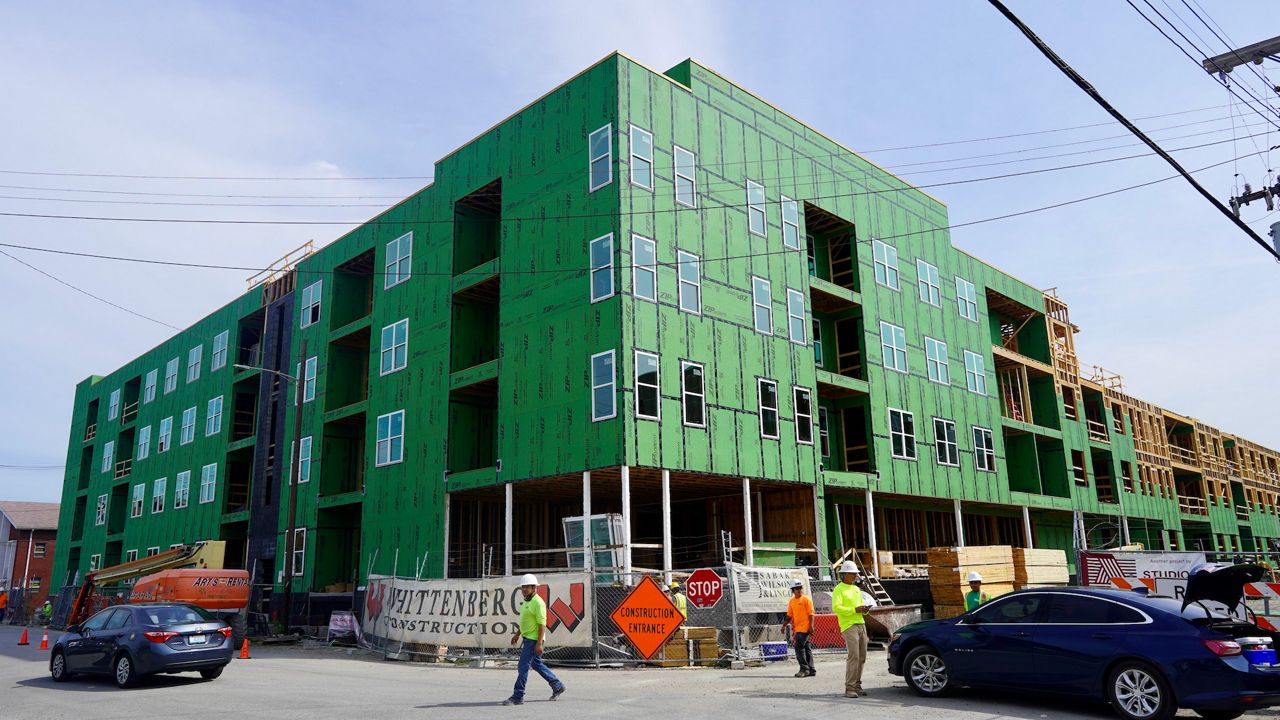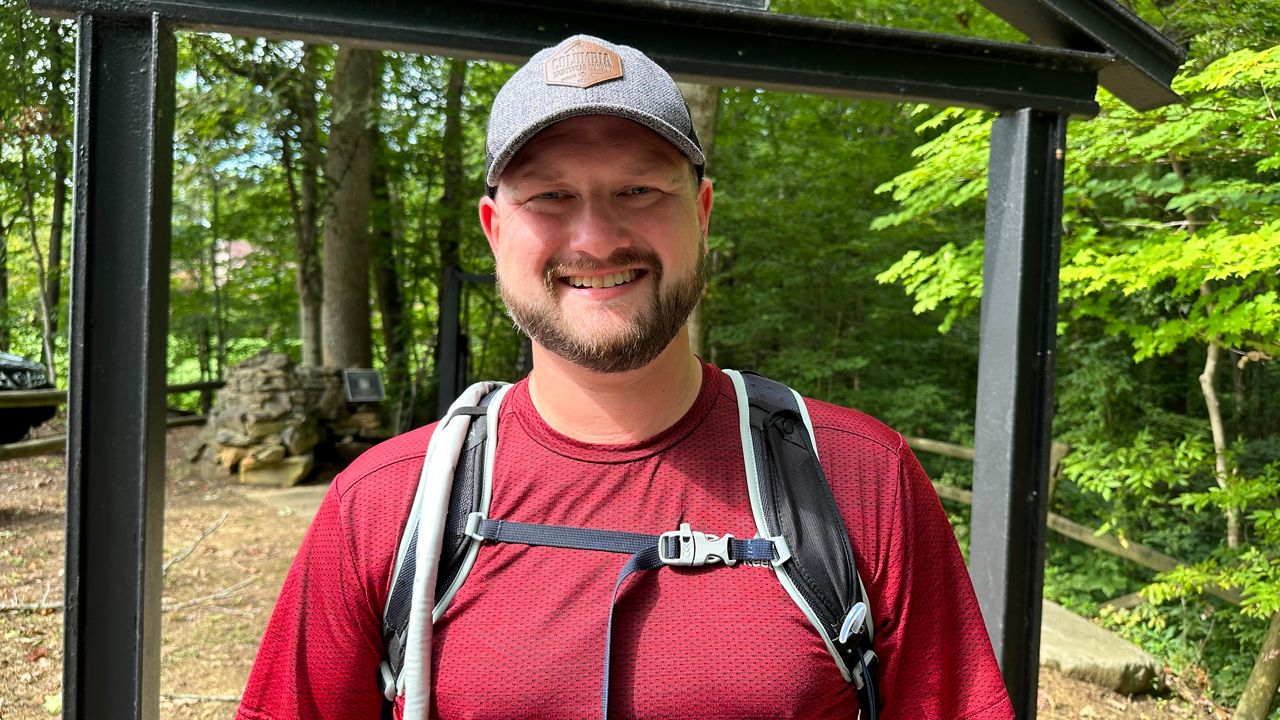LEXINGTON, Ky. — A new solar farm could be built in Lexington, but the project faces opposition from Lexington’s mayor and some thoroughbred professionals.
East Kentucky Power Cooperative developed its first solar farm in Clark County in 2017. Nick Comer with the company says that they’ve looked at how to expand the renewable energy options for decades, all toward environmental sustainability.
“Our cooperatives began offering a program called cooperative solar, where members can license solar panels out of that solar farm and get the financial benefits from that,” Comer said.
In April, the cooperative announced plans to develop two new solar farms. A 635-acre farm in Marion County and a 387-acre farm in Fayette County.
The power co-op says the eastern Fayette County location will sit between I-64 and U.S. 60, down the road from a regional headquarters.
Their goal is to produce enough electricity to meet the power needs of over 15,000 Kentucky homes.
At a public hearing with the Kentucky Public Service Commission in Frankfort, Lexington Mayor Linda Gorton said that while the city supports solar, this project offers no new jobs and poses a quote, “threat” to “prime farmland.”

The Kentucky Thoroughbred Association shares Gorton’s concerns. Chauncey Morris is the executive director who says they are concerned with zoning and development. “Beyond the urban service boundary, land is protected for agricultural production. Those agricultural production zones are zones that are vitally important to the farming community and the horse business here in the Commonwealth of Kentucky.” Morris said.
Some want the solar farm proposal to be denied.
“Because we know that one in 12 jobs here in Fayette County are derived from the farm economy. Most of the most valuable part of the farm economy is the horse business,” Morris added.
EKPC has 16 cooperatives in 89 counties that serve around 1.5 million people with plans for the company to create 40 megawatts of low-carbon and low-cost energy for nearly 4,500 users with this project. Gorton says most Lexington uses other means for electricity.
The power co-op says that solar panels could eventually be removed and that the land could be restored for agricultural use.
“The impact on the land will be minimal there. There will be very little grading that will need to be done.” Comer explained. “The topsoil for that piece of property will remain on the property at the end of the life of the solar farm, the panels, the mounting frames, and the posts and wiring can be removed from that property.”
EKPC says it could play a role in helping the city reach its goal of removing carbon emissions by 50% by 2030.
While Lexington also plans for zero net emissions by 2050, Mayor Gorton says that the city is developing its solar programs without farmland usage.
On Nov. 4, 2024, the East Kentucky Power Cooperative reached out to Spectrum News 1 to say it is sourcing 75 construction jobs with the solar farm project in Lexington.












